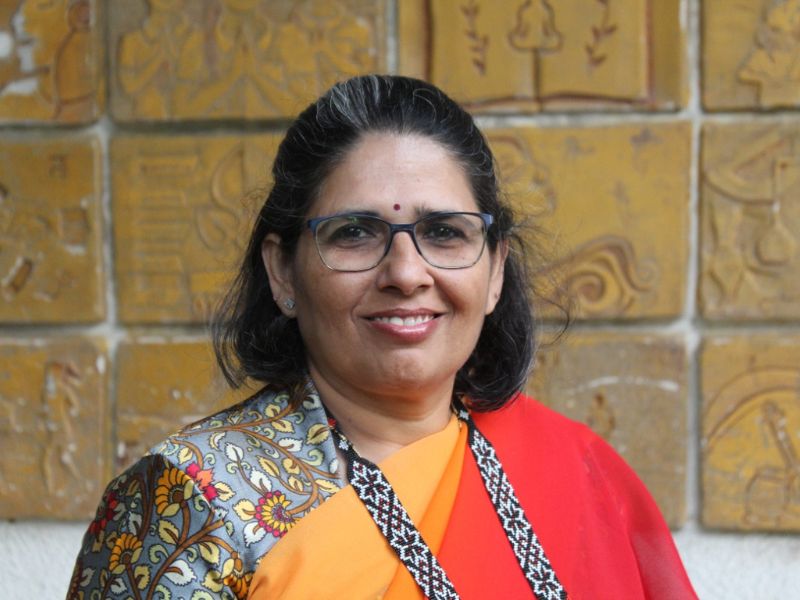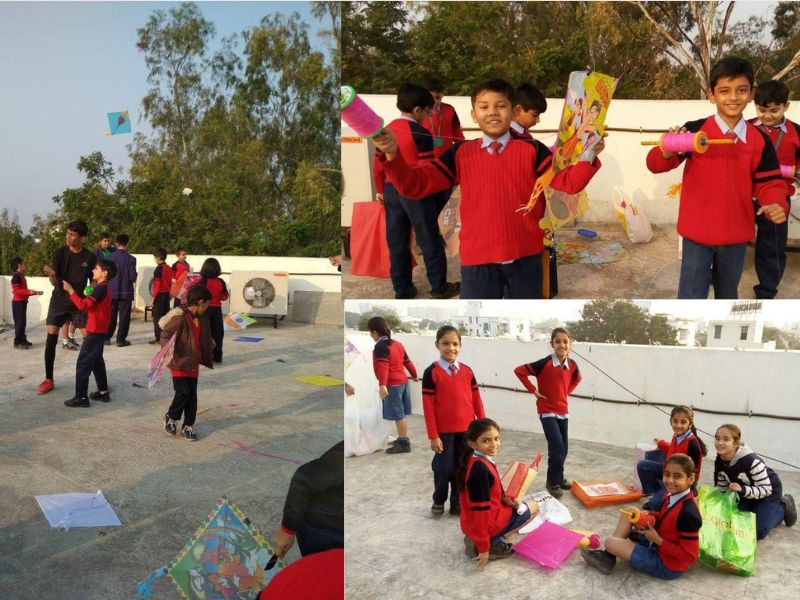 Shalini Moray, coordinator – Foundational Stage, Navrachana School, Sama
Shalini Moray, coordinator – Foundational Stage, Navrachana School, Sama
As teachers, we each have a range of values that influence and inform our philosophies of education. For most, if not all of us, these will include respect for the individual, tolerance, an appreciation of the role of community and society, a sense of dependence upon others, inter-dependence with those in a range of places around the globe, and an understanding of love, care, friendship, and thankfulness.
Making children sensitive to the environment and the need for its protection is an immediate social concern. It is imperative to nurture the values of care and concern for the physical and natural environment, use of environmental resources in a rationale and constructive way, realise the interdependence between human being and the environment and so on for living in tune and harmony with nature. Human health can no be no longer maintained without concern for the preservation and sustainability of the environment.
Values are learnt as we learn habits in the process of growing up. Research suggests that teachers are particularly concerned about how parents and guardians will react if schools address issues relating to values in a way contrary to their own personal views (Woolley 2010). Thus, it is important to have a sense of what we are seeking to achieve as educators – and what the purpose of education is – to establish a rationale for inclusive practice.
At Navarchana School, Sama, we have been conducting a sensitisation programme for students of classes I-II, teaching them to behave responsibly, by caring for the natural habitats, wildlife and endangered species. We teach them to use environmentally friendly products, such as, safer non glass coated manja. Respect authority, and act by calling helpline numbers if they see any injured birds. The values of empathy, compassion and caring for the environment whilst maintaining tradition is woven into the totality of the educational program run by the school where value education does not form a mere appendage of all other subjects but stands out as over-arching concern of basic importance.

Implementation
“Throw your dreams into space like a kite, and you do not know what it will bring back- a new life, happiness, luck, smiles, bonding, new friends.” That is what the students of classes I and II experience by flying kites to bring in the spirit of Uttarayan. “Katio Che, Kai-Po-Che” are the words ringing in the air as children enjoy the tradition Til ladoos and Chikkis. Students of all castes, religions and economic background participate in the event. Senior boys and girls help the children to fly the kites.
A typical day at Navarachana begins with the children coming to school and greeting their teachers, their first period is usually with their class teachers where they discuss everything that happened during the previous day at school and also at home.
Today, is a little different; Makar Sankrant (the kite flying festival in Gujarat) is just around the corner. In their art and craft class they learn to make their own kites with their teacher.
The next period is Hindi. Today, the teacher decides to talk about colours in Hindi. So the children get introduced to Hindi words like Narangi, Laal, baingani etc.
The next period is English. We espouse reading through supplementary reader. Currently we are using – “ Gopi’s Diaries” by Sudha Murty, The Gopi Diaries is a series of three books for children about a dog called Gopi. Told in Gopi’s voice, the first book, ‘Coming Home’, begins with Gopi going to his new home, and tells the story of how he settles down with his loving, human family. The english teacher explains how the kite flying festival is going to be celebrated and how like in the book empathy, compassion and love which is taught through the puppy’s perspective is also applicable for birds and other living creatures. So the teacher explains all the activities that they are going to be doing in school, like flying the kites, they are going to be sharing with their friends and teachers the sweets like the Til ladoos, and the Til and Ground nut chikki which they will get. They will also be sharing with the elder children who will be coming and helping them to fly the kites.
In the following period which is ENV, the teacher discusses how to celebrate the festival in an environmentally friendly way. For example the kites will be made of environmentally friendly kite paper, bamboo sticks for the frame, and regular Maanjaa and not the chinese non-breakable Maanjaa which injures birds and usually kills them. Children are also taught about the habits of the birds. Children are taught that the best time to fly kites is during the day, and why it is not safe to fly kites early in the mornings during sunrise when the birds go looking out for food and later in the evening around sunset when they are returning to their nests. They are taught that these are times when birds get injured the most. The teachers also give them the helpline numbers and tell them what they are supposed to do when they see an injured bird. We have an in-house teacher who is an expert at handling injured birds, she comes and gives a talk during their OH activity time on how to handle injured birds and how to save a life.
The objective of this programme is to make learners aware of the threats they pose to the environment, and how to minimise this threat by behaving responsibly. Using Hart’s ladder of Participation, we scaffold the children into an adult initiated decision which is shared with the children. They in turn go home and make it into a child-initiated decision which is shared with adults.
The values inculcated through this learning methodology across subjects, makes learning a lifelong experience for our students.
Also read:
Navrachana School, Sama: Fostering leadership and 21st-century skills


























